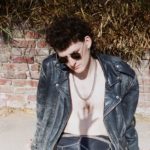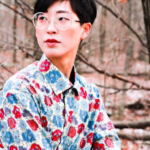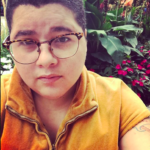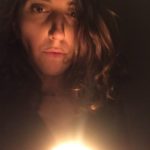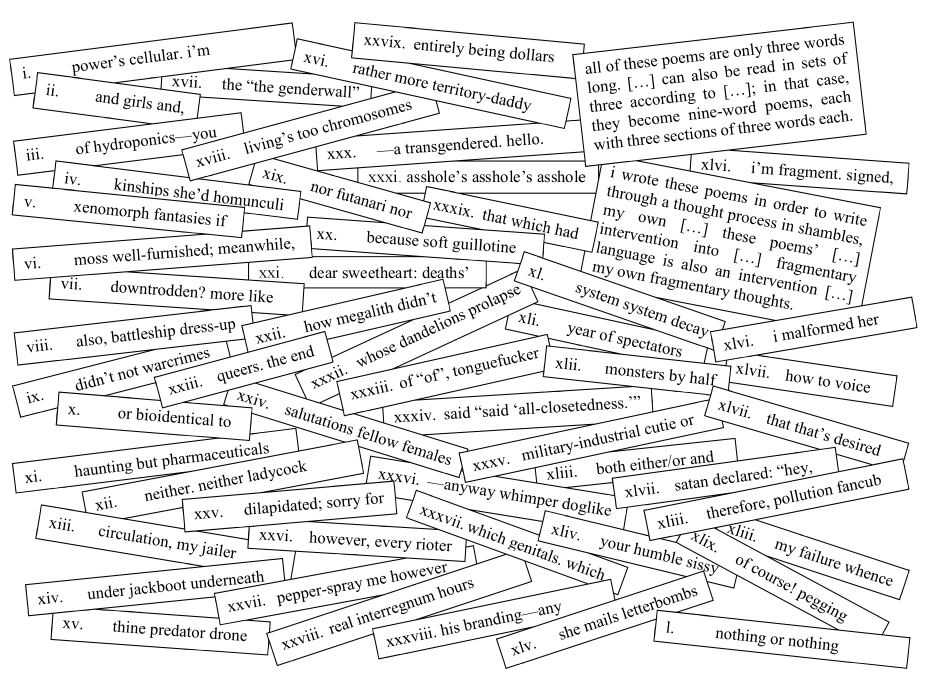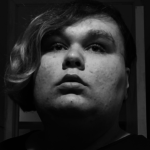I started writing speculative responses during the 2016 Tax Day floods when I couldn’t leave my house. I started using the language of terrible Google translations of my dad’s Facebook statuses to write about how surreal it felt to be forced stationary; about living in the Third Ward with a sense of sped-up gentrification time, and then circling back during and after Hurricane Harvey. I fed these different strands/threads/times into each other. What merged – weird narrative snatches and explorations. Later, I listened to Diane Glancy read to us, encouraging a half-listen and half-write. Her language as tuning fork, associative leap.
after so many days fled from scattering mold
watch window punch back
invading water
let go Thursday birds stranded on roof no matter we flee he will not leave
watch closer dock floating
in seam I watched through doorway as he grew open in back
*
hinge I don’t think twice about insert my ghost
when she’s not looking grew up sharing same pants and sweater
both chewing a hot pair of steaks she doesn’t recognize these days
swinging her long disaster hair her terrible stranger
lips made up to night
I want to say, in future
you will lose all hair
and maybe your mother
but surprise a winner how we deal with discharge
keeps us forward and nimble a laugh on gas knee
*
all hair will scatter
all window punch
all water invade then birds sink surprise
it’s your mother Thursday fleeing the seam
when she’s not looking we both share a hot pair
tuning fork conversation
listening to Diane Glancy on QWERTYUIOPASDFGHJKLZXCVBNM (The Keyboard Letters)
“why are we here in the wilderness?”
to wrestle with lefting desire in an old Chinese junket grasp all the legs
going by a yolking cracking ground
pages of that old notebook visiting the Holy Park theme park thirty years
working on disruption
rejected again and again a clump of old stormy stories which don’t like one
another a non-working watch congealing on my wrist
whatever that means this entry in the creek a mustard seed signature to herd rough
pecan weather through passing twenty-six letters through undercurrent fire
stifled by wishing we more orderly mother window even the seams well planned
such a pleasure towards finish to tie our half-starved
differences together all we got to form a mathematics of wilderness
‘how can what I see be trusted?’
but I have my own sweetfeed world to go

Ching-In Chen is the author of The Heart’s Traffic (Arktoi/Red Hen Press, 2009) and recombinant (Kelsey Street Press, 2017; winner of the 2018 Lambda Literary Award for Transgender Poetry). Chen is also the co-editor of The Revolution Starts at Home: Confronting Intimate Violence Within Activist Communities (South End Press, 2011; AK Press 2016) and Here Is a Pen: an Anthology of West Coast Kundiman Poets (Achiote Press, 2009). They have received fellowships from Kundiman, Lambda, Watering Hole, Can Serrat and Imagining America and are a part of Macondo and Voices of Our Nations Arts Foundation writing communities. Their work has appeared in The Best American Experimental Writing, The &NOW Awards 3: The Best Innovative Writing, and Troubling the Line: Trans and Genderqueer Poetry and Poetics. A community organizer, they have worked in the Asian American communities of San Francisco, Oakland, Riverside, Milwaukee and Boston. A poetry editor of the Texas Review, they currently teach creative writing at Sam Houston State University. www.chinginchen.com

 BACK TO ISSUE
BACK TO ISSUE
